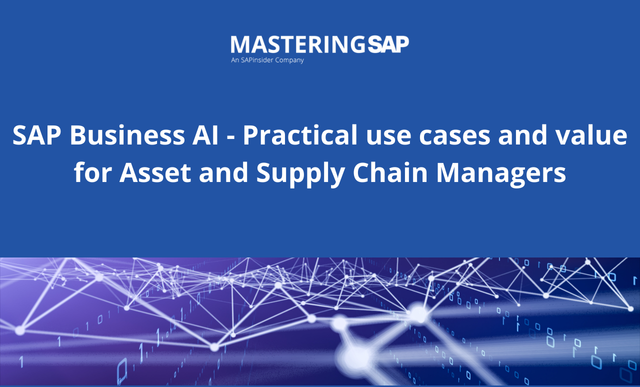SAP and OpenAI Collaboration: Unveiling the Future of AI Integration at SAPPHIRE 2023
Meet the Authors
Key Takeaways
⇨ SAP CEO Christian Klein announced the company will prioritize AI at his SAPPHIRE 2023 keynote address.
⇨ SAP will collaborate with Microsoft to embed generative AI into many of its offerings.
⇨ SAP will continue to reveal new AI use cases across SAP's various functional domains and lines of business.
Keynote
In the enterprise technology sector, speculation and anticipation have been steadily building around SAP’s collaboration with OpenAI. This followed a recent first-quarter earnings call where Christian Klein, SAP CEO, suggested a strategic shift toward artificial intelligence (AI) and large language models (LLMs), including ChatGPT.
At SAPPHIRE 2023, SAP elaborated on this strategic focus, shedding further light on this crucial development. Just ahead of the speech, SAP announced a collaboration with Microsoft to bring generative AI into many of its offerings through Microsoft Azure’s OpenAI Service. Klein said SAP would “double down” on its usage of AI, embedding it into SAP software to deliver business value, while continuing to develop AI use cases.
During his keynote speech, Klein highlighted several key examples of cases in which SAP will leverage the capabilities of generative AI.
Explore related questions
One such example is the HXM space. SAP SuccessFactors will now feature generative AI that can update job descriptions to more accurately capture the skills and attributes teams need, like certifications. It also enables reskilling and upskilling through Viva learning, making the growth journey more personal for each employee. When it comes to hiring, a bot within SuccessFactors can provide sample questions to ask candidates, and then asks for feedback after an interview—all within the same application.
AI Collaboration
The impact of the SAP-OpenAI collaboration could be substantial for organizations running finance operations on SAP S/4HANA Cloud. Other areas where Klein said AI will have a significant impact include:
- Enhanced Automation: The integration of AI and LLMs can streamline complex processes and amplify operational efficiency within the finance department.
- Improved Decision-Making: AI technologies can enhance financial decision-making by providing precise, real-time insights, thus empowering finance teams to identify trends, make accurate forecasts, and make more effective data-driven decisions.
- Increased Accuracy: The automation of manual processes can reduce human error and boost the accuracy of financial operations.
- Cost Savings: Enhanced operational efficiency and increased accuracy can lead to significant cost savings for organizations, including reductions in labor, fewer errors, and less time spent on routine tasks.
- Risk Management: Advanced AI models can assist in identifying and mitigating potential financial risks, thereby strengthening an organization’s overall risk management capabilities.
- Innovation and Scalability: The partnership can spur innovation in financial operations, enabling organizations to scale their operations effectively to manage larger volumes of data and transactions.
- Future-Proofing Finance Operations: Early adoption of AI can ensure that finance operations are ready to handle future challenges. As AI technology continues to evolve, early adopters could gain a competitive advantage.
Looking ahead
SAP has previously offered glimpses into its AI roadmap, reinforcing its commitment to develop intelligent, sustainable solutions aimed at propelling businesses into a new era of digital transformation. The SAPinsider’s “Intelligent Finance in the Cloud” report underscores innovative technologies such as SAP S/4HANA and SAP BTP as pivotal in driving organizations toward adopting intelligent automation in finance and accounting (F&A) processes.
SAP will continue to reveal new AI use cases across SAP’s various functional domains and lines of business, with six being powered by generative AI. These use cases will demonstrate the potential of AI integration within SAP’s software ecosystem and showcase the transformative potential of AI for SAP organizations.
The implementation of AI and LLMs in finance operations necessitates careful planning and management. Issues such as data privacy, security, and the ethical use of AI technology must be addressed to ensure a successful and sustainable integration. With the announcement of the expanded SAP/OpenAI partnership, many SAPinsiders are keenly waiting for future product updates. Yet, there are still unanswered questions regarding security, data, and sustainability impacts of leveraging LLMs within their SAP landscapes.








